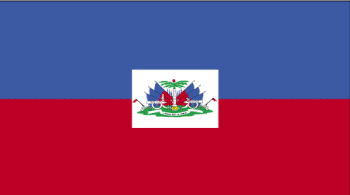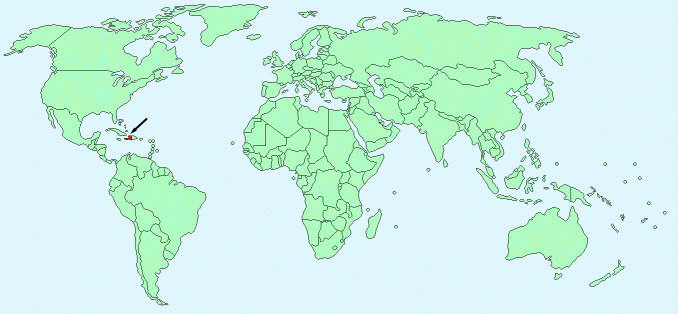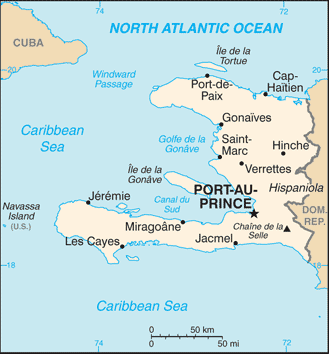Haiti


Continent – America
Region – North America
Size – 27,750km²
Geography -mostly rough and mountainous
Language – French, Creole
Religion – Roman Catholic 80%, Protestant 16%, none 1%, other 3%
Monetary Unit -Gourde
Natural Resources – bauxite, copper, calcium carbonate, gold, marble, hydropower
Agriculture – coffee, mangoes, sugarcane, rice, corn, sorghum; wood
Industry – textiles, sugar refining, flour milling, cement, light assembly based on imported parts

Neighbouring Countries – Dominican Republic
Population – 9,996,731 (2014 estimate)
Population Growth Rate – 1.08%
Average Life Expectancy – 63.18 years
Capital City -Port-au-Prince (2,296,386)
Highest Mountain -Chaine de la Selle (2,680 m)
Longest River – Artibonite River 320km
Climate – Tropical 23°C to 31°C,
Yearly Rainfall – 137cm (approx)
Plant Life – pine and ferns mahogany, cedar, rosewood. Coffee, cacao, and coconut trees and native tropical fruits such as avocado, orange, lime, and mango
Animal Life – Reptile life includes three varieties of crocodile, numerous small lizards
Bird Life – Ducks, guinea hens, and four varieties of wild pigeons, egrets and flamingos
Harvard Reference for this page:
Heather Y Wheeler. (2015). Haiti. Available: https://www.naturalhistoryonthenet.com/Facts_Figures/Country_Facts/haiti.htm. Last accessed Monday, July 18, 2016
Facts and Figures Pages
